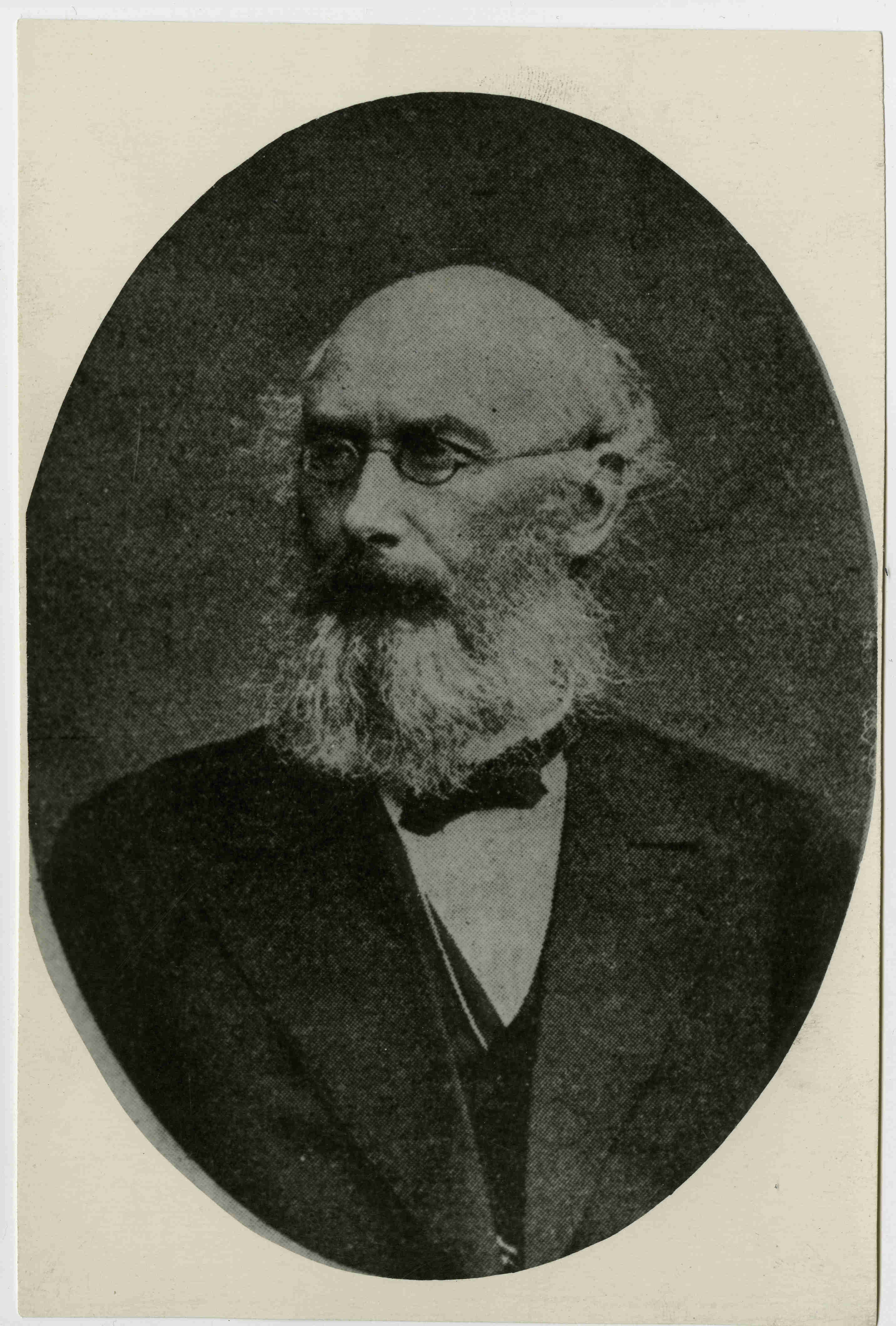
Friedrich Nikolai Russow
About Friedrich Nikolai Russow
Friedrich Nikolai Russow (14. IV 1828 – 22. VII 1906) was a poet and promoter of progressive journalism during the period of national awakening.
The poet and activist was born on 14 April 1828 in Tallinn, the son of a customs officer. On his father’s side Russow was descended from Estonian serfs, but his mother was born out of wedlock to Baron Carl Gustav von Rosen the younger (1765-1833) and Marie Jürgens, an Estonian housemaid and daughter of a weaver from a serf family (the family was freed from serfdom in 1805).
He attended Paide county school, the Tallinn Governorate Gymnasium, and the University of St. Petersburg, where he studied law. After graduation from university he worked in Tallinn for the Governorate of Estonia; in 1859 he was appointed chairman of the Toompea Bailiffs’ Court. At the same time he was an Estonian language interpreter for the Governorate. In 1863 he moved to St. Petersburg, working as a secretary at the Ministry of Finance. From 1886 to 1899 he was Keeper of the department of Engravings and Drawings at the Imperial Hermitage; from 1865 to 1905 he was also Keeper of the ethnographic museum of the Academy of Sciences. As an amateur artist he painted and engraved landscapes and cityscapes. He died in St. Petersburg.
Russow has entered Estonian cultural history primarily because of his pioneering initiatives in journalism. Between 1854 and 1857 he produced a series of 8- to 12-page booklets, written in the old orthography in the dialect of North Estonia, Tallinna koddaniko ramat omma söbbradele male (‘A book by a citizen of Tallinn for his friends in the country’, 12 vols.), telling the peasantry of the events of the Crimean War. As a semi-periodical publication, it was the predecessor of regularly appearing Estonian journals. In 1860 Russow, together with the lawyer and historian Th. W. Greiffenhagen, established the socially critical daily newspaper Revalsche Zeitung, which he edited until 1862. The liberalism, social criticism, and arguments for the need for reform expressed by the Revalsche Zeitung and some other periodical publications exerted an influence on the development of the Estonian intelligentsia. Contributors to the paper included liberally inclined intellectuals from Tallinn and also elsewhere, among them F. R. Kreutzwald.
Russow has entered Estonian literary history as the author of poems. In 1854 he produced two powerful poems inspired by the Crimean War, Söalaul Eestima tütarlastele (‘War Song for the Girls of Estonia’), and Wenne soldati laul (‘Song of the Russian Soldier’), as well as a booklet of verses, Ued kandlekeled (‘New Strings for the Lyre’), most of which are Estonian renderings of German authors. Russow was one of the first to try to revive the ancient runic verse form (regivärss) in Estonian poetic art. In the eighteen-fifties he was the only one, besides Kreutzwald, who even attempted to produce substantial verse in Estonian. Kreutzwald was appreciative of Russow as a poet. Russow’s ‘War song for the girls of Estonia’ was the impetus behind Kreutzwald’s long poem Sõda (‘War’).
L. P. (Translated by C. M.)
Books in Estonian
Poetry
Söalaul Eestima tütarlastele. Tallinn: Lindforsi pärijad, 1854. 4 lk.
Ued kandlekeled. Tallinn: Lindforsi pärijad, 1854. 22 lk.
Prose
Russische Landschafts- und Lebensbilder. Reval: Gedruckt bei Lindfors Erben, 1864. 128 lk.



